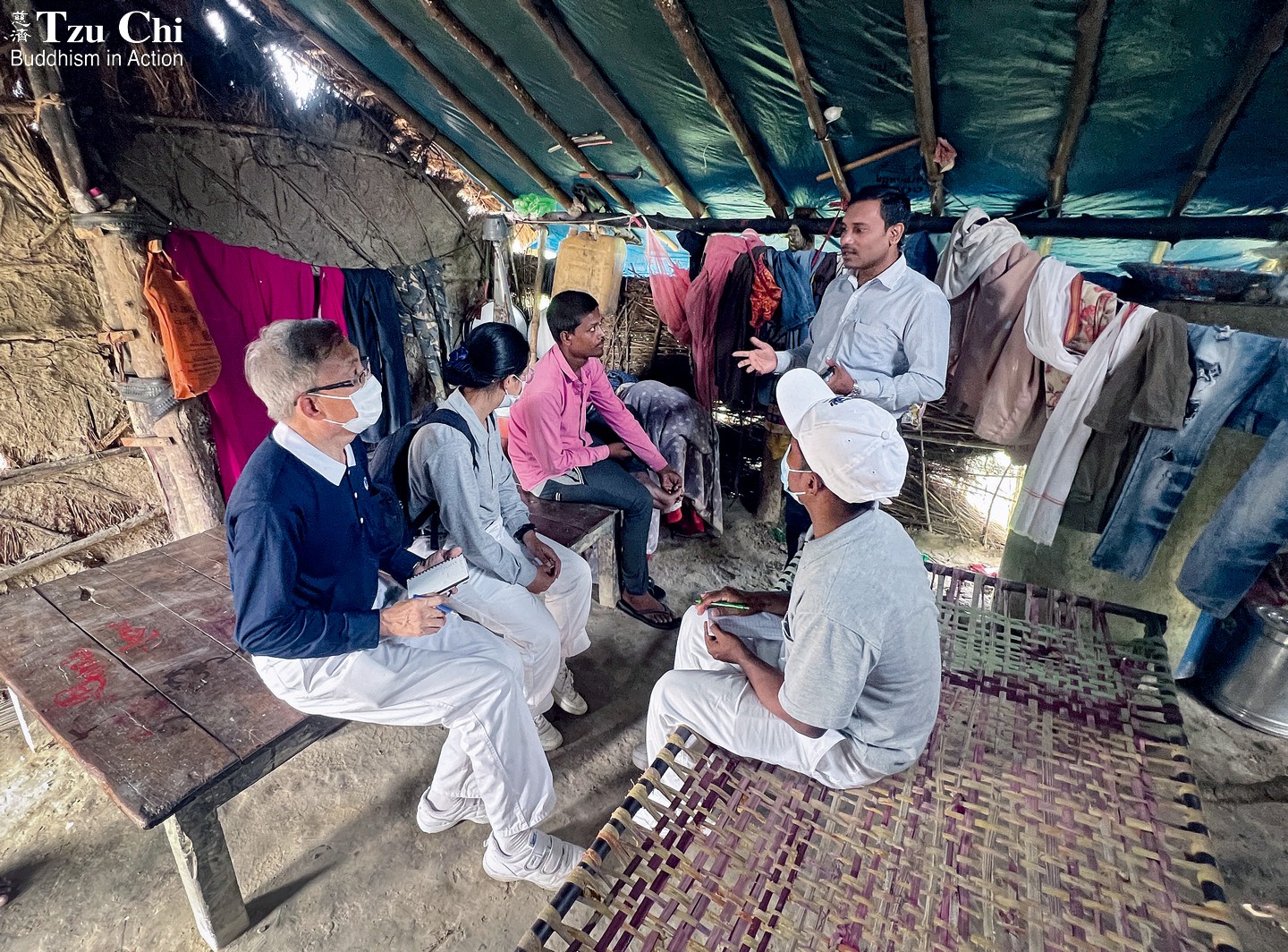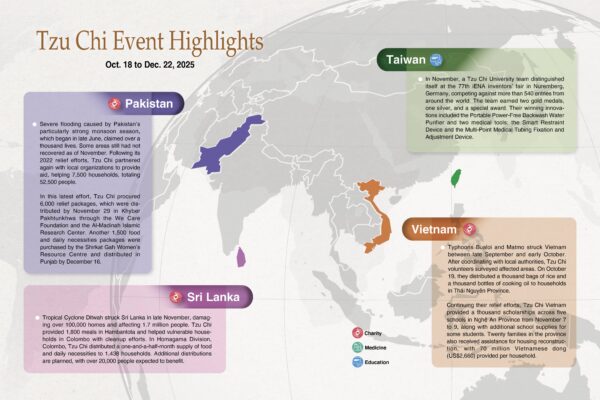Translated by Teresa Chang
It has been my long-held aspiration to give back to the birthplace of the Buddha. The pervasive poverty in the region calls for compassionate people to plant seeds of goodness and bring about change. I’m grateful to the Tzu Chi volunteers from Singapore and Malaysia who share this aspiration with me. They initially paid short visits to Nepal and, since April of last year, have established a long-term presence there. Their efforts encompass missions of charity, healthcare, and education. For instance, they have introduced vocational sewing classes to equip local women with skills that can improve their families’ economic well-being. Our volunteers work with sincerity, taking each step steadily, in their mission to create a positive impact in local communities.
Earlier this year, they extended their philanthropic endeavors to Bodh Gaya, India, the place where the Buddha attained enlightenment. One heartwarming example of Tzu Chi’s impact there is Gain Manjhi, an elderly resident of Bakraur in Bodh Gaya. He previously lived by begging at tourist spots, often struggling to secure his daily meals. Worried neighbors informed our volunteers of his plight. Once he had enough to eat, he shifted from a recipient to a giver, joining our volunteers in aiding others.
Our volunteers didn’t just assist Gain Manjhi in rising above his beggar status; they aspired to bring about more positive transformations. Their goal is to foster self-sufficiency and ensure everyone has enough to eat.
Tzu Chi originated in Taiwan, a tiny dot on the world map. Our foundation has more than 55 years of history, yet it is also a mere droplet in the grand expanse of the world. Despite being a mere droplet, we have been doing our best to bring light to the world. Our journey began with 30 housewives, each saving a small amount of their grocery money every day for charity work. We’ve evolved from that humble beginning by combining bits and pieces of help. For decades now, we’ve been able to extend our care to suffering people around the world.
Life is impermanent and full of suffering. When faced with misfortune, some people lament, “I’ve been doing good deeds, so why do I still encounter such hardships?” But harboring resentment towards adversity will not offer a solution and might even hinder one’s spiritual growth. Wise individuals understand the unpredictable nature of life. When adversity strikes, they recognize it as a shared human experience. They perceive life as an ongoing journey of learning, intricately woven with karmic connections. With this understanding, they embrace life as it unfolds, facilitating the resolution of karmic debts. They uplift themselves and find the strength to help many others.
The world is indeed full of suffering, but it is only in this world that we can follow the Bodhisattva Path. Life’s suffering leads to the emergence of bodhisattvas. Because this world is full of trials, we must, even more so, make profound vows of dedication to help those in need. We must commit ourselves to remaining determined and steadfast in our mission, undeterred by obstacles.
As we walk the Bodhisattva Path, we should inspire others to join us on this path. This was one of the reasons why Tzu Chi volunteers took to the streets to raise funds for survivors of the February quakes in Türkiye. The essence of fundraising lies in raising people’s awareness of others’ suffering, reminding them of their own blessings, and inspiring them to tap into their inner wellspring of love. Though each individual’s strength or contribution might be limited, they can make a significant impact when pooled together.
In Türkiye, more than 8,000 kilometers from Taiwan, there are residents enduring the consequences of natural disasters and Syrian refugees displaced by man-made calamities. These refugees lost their good lives in their homeland due to the ignorance and delusion of a few. Such ignorance and delusion give rise to disputes, conflicts, and ultimately, devastating wars that bring untold suffering to countless people. It is only through pious sincerity, the cultivation of kind thoughts, and the practice of positive deeds that we can hope to dispel such disasters.
Disasters stem from the human mind. A virtuous thought can create heaven, while a malevolent one can lead to hell. The slightest shift in thought can make all the difference. Though observing the turmoil of the world may raise worries, it’s important not to succumb to anxiety. Instead, we should redouble our efforts to transform human hearts and minds. By nurturing the love within people’s hearts, and by encouraging everyone to give to the less fortunate, we offer a potent remedy for the world’s ills; we not only bring relief and joy to the needy, but also find fulfillment and happiness ourselves. Let us be ever more mindful.

Tzu Chi volunteers visit a destitute family in Lumbini, Nepal, who have relied on begging for their livelihood for generations. Khoo Kean Yee



